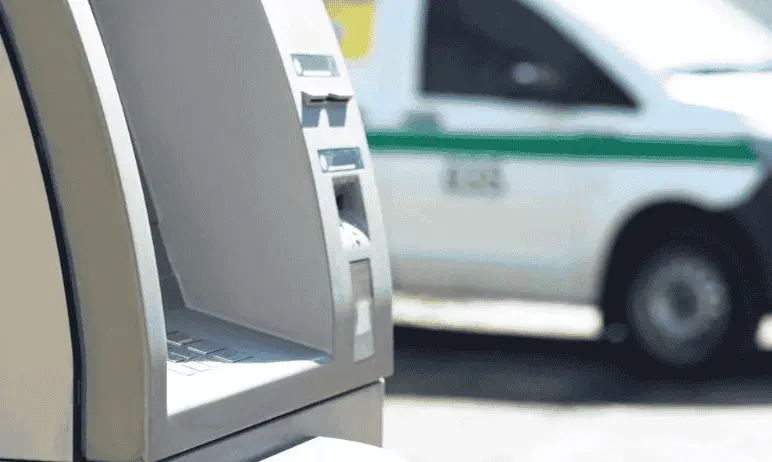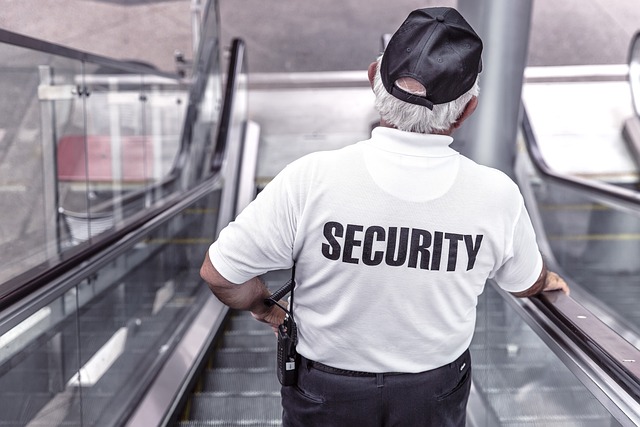Life at the top comes with pressure. In Bangladesh, senior executives move through busy streets, crowded offices, factories, airports, and public events almost every day. They deal with deadlines, people, and decisions that matter. What many people do not see is the quiet layer of safety around them. This is where the question How a Personal Protection Officer Keeps Executives Safe in Bangladesh becomes very real.
A personal protection officer, often called a PPO, works mostly in silence. No spotlight. No drama. Just careful thinking and steady action. The goal is not to fight danger, but to avoid it before it appears. In Bangladesh’s fast-moving and sometimes unpredictable environment, that role matters more than many realize.
This article explains how that protection actually works, step by step, in real conditions.
Understanding The Personal Protection Officer Role
A personal protection officer is not just a bodyguard standing nearby. The role is wider and more complex. It mixes awareness, planning, people skills, and physical readiness.
In Bangladesh, a PPO often works close to the executive for long hours. Plans change quickly. Meetings move. Traffic delays happen. The officer must stay alert without becoming tense.
Their main responsibility is simple to say, but hard to do: keep the executive safe without disturbing daily life.
That means:
- Watching the environment constantly
- Anticipating risks early
- Staying calm under pressure
- Acting fast, but quietly
Most of the time, nothing happens. And that is exactly the point.
Why Executive Safety Is Different In Bangladesh
Every country has risks, but Bangladesh has its own mix. Dense population. Heavy traffic. Political activity. Public gatherings. Narrow roads. Sudden weather changes.
Executives may travel through:
- Congested city centers
- Industrial zones with labor movement
- Hotels and conference venues
- Residential areas with limited security
Small issues can grow quickly here. A traffic jam can turn into hours of delay. A peaceful gathering can shift mood fast. A road can close without warning. Because of this, protection in Bangladesh is not about force. It is about awareness and timing.
Planning Before The Executive Moves
A protection officer starts working before the executive even leaves the room. Route planning is critical. A PPO studies routes in advance, often choosing more than one option. They think about traffic patterns, road quality, construction work, and known congestion points.
Before movement, they consider:
- Time of day
- Weather conditions
- Public events nearby
- Entry and exit points
If one route fails, there is always another. This planning reduces stress and avoids rushed decisions later. The executive may not notice any of this. That is good protection doing its job.
Staying Alert Without Being Obvious
A personal protection officer must blend in. Too much visible security can draw attention. Too little can create risk.In Bangladesh, blending in matters even more. A PPO often dresses according to the environment. Office setting, casual visit, formal event, each requires adjustment.
They scan the area constantly, but naturally. Watching movement. Noticing behavior. Looking for patterns that do not fit.This does not mean suspicion of everyone. It means quiet awareness. Small details matter more than big ones.
Managing Crowded Environments Safely
Crowds are normal in Bangladesh. Markets, offices, events, even building entrances can become crowded fast. A PPO understands how crowds behave. They know where pressure builds and where movement slows.
When moving through crowds, the officer:
- Positions themselves slightly ahead or beside the executive
- Creates space without pushing people
- Avoids tight corners and blocked paths
- Watches hands and movement direction
If a crowd starts to feel tense, the PPO may suggest leaving earlier than planned. That decision can prevent bigger problems later.
Vehicle Safety And Movement Awareness
Vehicles play a big role in executive safety. Long drives, mixed traffic, and unpredictable road behavior make movement risky.
A PPO pays close attention to vehicle-related details:
- Where the car is parked
- How doors open and close
- Surrounding vehicles
- Entry and exit timing
They avoid stopping too close to other vehicles when possible. They notice if a vehicle seems to follow repeatedly. These small observations matter. Safe movement is not about driving fast. It is about keeping distance and staying flexible.
Handling Sudden Changes And Surprises
No plan stays perfect for long. Meetings run late. Roads close. Weather changes suddenly. People arrive unannounced. A good PPO expects this. They do not panic when plans shift.
Instead, they:
- Reassess the situation quickly
- Adjust routes or positions
- Communicate calmly
- Decide whether to continue or leave
The executive should never feel rushed or alarmed. Calm communication keeps confidence high.
Communication As A Protection Tool
Many people think protection is about physical strength. In reality, communication often matters more.
A PPO talks to drivers, staff, event organizers, and sometimes local authorities. Clear, respectful communication prevents confusion.
In Bangladesh, tone and respect are important. A calm voice can defuse tension faster than authority.
Good communication helps:
- Coordinate movement smoothly
- Avoid misunderstandings
- Reduce attention
Often, problems end before they begin because someone explained things well.
Building Trust With The Executive
Protection works best when there is trust. A PPO does not control the executive. They advise and guide. They explain risks in simple terms and suggest safer options. Executives are busy. They appreciate clear, short advice. Not long explanations.
Over time, trust grows. The executive listens. The PPO understands preferences. This teamwork makes protection smoother.
Understanding Local Behavior And Culture
Local knowledge is a major advantage. Bangladesh has its own rhythms and reactions.
A PPO understands:
- Peak traffic hours
- Public behavior during political events
- Seasonal weather impacts
- Social norms in public spaces
This knowledge comes from experience, not books. It helps the officer make better decisions in real time. Ignoring local context creates blind spots. Understanding it reduces risk.
Maintaining Privacy And Discretion
Executives value privacy. A PPO must respect that fully. Schedules, movements, personal details are never shared. Conversations stay private. Observations stay internal. Discretion builds confidence. The executive knows their personal and professional life is protected, not exposed. Often, the best protection leaves no trace at all.
Physical Readiness And Mental Focus
The job is physically demanding. Long hours. Standing. Walking. Constant alertness. But mental focus matters just as much. Fatigue can dull awareness.
A PPO manages:
- Rest when possible
- Hydration
- Stress levels
Staying sharp over long days is part of the job. Protection is not a short sprint. It is a long, steady effort.
Training And Experience Together
Training prepares a PPO. Experience refines them.
Skills often include:
- Risk awareness
- Defensive movement
- First response basics
- Conflict avoidance
Training builds structure. Experience builds judgment. Together, they create effective protection.
Protecting During Events And Public Appearances
Events increase exposure. More people. More movement. More uncertainty.
A PPO plans events carefully:
- Arrival and departure timing
- Seating positions
- Emergency exits
- Crowd flow
They stay alert without hovering. They watch the room continuously. If something feels wrong, they act quietly. Often, the executive never knows how close an issue came.
When Protection Looks Invisible
The best protection is often invisible. No incidents. No interruptions. No stories. A normal day is a successful day. When an executive finishes meetings, travels safely, and returns home without concern, the PPO has succeeded. Protection is measured by what never happened.
The Human Side Of Protection Work
Behind the role is a person. Long hours. Missed family time. High responsibility. A PPO carries the weight of safety silently. If something goes wrong, they take it personally. This human side shapes how they work. With care. With seriousness. With commitment.
Conclusion
Executive life in Bangladesh is demanding. Movement is constant. Risks exist, even when they are not obvious. That is why How a Personal Protection Officer Keeps Executives Safe in Bangladesh is not just an idea. It is daily practice.
Protection is not about fear or force. It is about planning, awareness, communication, and calm decisions. It is about understanding local realities and acting early.
A skilled personal protection officer works in the background. Always alert. Always ready. Rarely noticed.
And when safety feels normal, that means the job is being done right.

Editorial staff’s are at AB Securitas Bangladesh are experts in security guard services in Bangladesh.


 When you hear the term Cash in Transit, it’s really just about moving money from one place to another safely. It could be from a shop to a bank, or from a bank to an ATM. Pretty simple idea, right? But it’s actually a whole system behind the scenes. In Bangladesh, where cash still runs much of the economy, this service plays a pretty big role. With so many banks, ATMs, and busy retail businesses, moving cash securely has become a daily routine. So, learning what Cash in Transit is and how it works in Bangladesh helps you understand how professionals, armored vehicles, and tech come together to keep every taka safe during the ride.
When you hear the term Cash in Transit, it’s really just about moving money from one place to another safely. It could be from a shop to a bank, or from a bank to an ATM. Pretty simple idea, right? But it’s actually a whole system behind the scenes. In Bangladesh, where cash still runs much of the economy, this service plays a pretty big role. With so many banks, ATMs, and busy retail businesses, moving cash securely has become a daily routine. So, learning what Cash in Transit is and how it works in Bangladesh helps you understand how professionals, armored vehicles, and tech come together to keep every taka safe during the ride.




